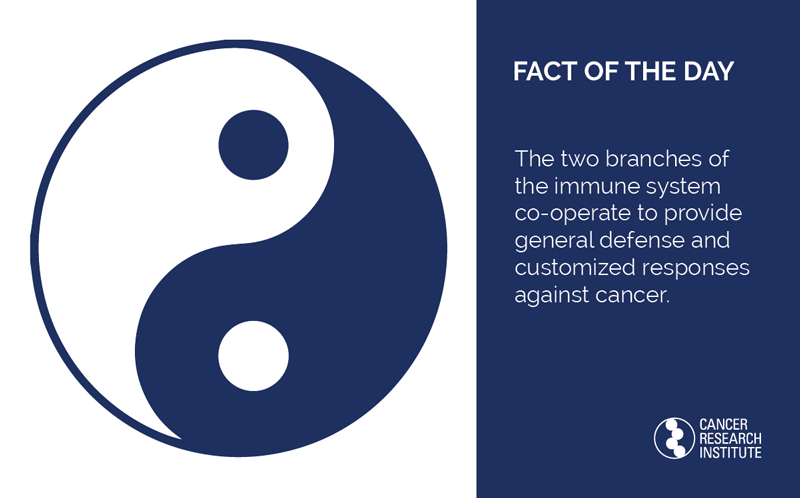 The two branches of our immune system co-operate to provide general defense and customized responses against cancer.
The two branches of our immune system co-operate to provide general defense and customized responses against cancer.
The immune system has both innate and adaptive components that complement each other. Innate cells can quickly respond to common threats (infections, cancer, etc.) through their ability to recognize to potential signs of danger such as foreign molecules or genetic material in improper places.
These innate responses can help get things under control initially, but they aren’t great at adapting to threats (like cancer) that evolve over time. Fortunately, once the innate cells sound the alarm, they also stimulate adaptive immune cells (such as T cells) to carry out incredibly precise responses against tumors.
Three CRI scientists—Lloyd J. Old, M.D., Robert D. Schreiber, Ph.D., and Mark J. Smyth, Ph.D., FAHMS—provided the first definitive evidence of this natural protective ability when they showed that mice without adaptive abilities developed cancer much more often than normal mice. (For obvious reasons, this experiment has not been performed in humans.)
In addition to many others investigating adaptive immunity, the following CRI-funded scientists are currently exploring how innate immune cells and pathways could be used to improve the effectiveness of anti-tumor immune responses:
- Sadeem Ahmad, Ph.D.
- Jonathan M. Clingan, Ph.D.
- Nicholas David Huntington, Ph.D. and Sandra Nicholson, Ph.D.
- Tuo Li, Ph.D.
- Olivia Majer, Ph.D.
- Tak W. Mak, Ph.D.
- Monica Olcina, Ph.D.
- Brian R. Graziano, Ph.D.
- Davalyn R. Powell, Ph.D.
- Xiaojun Tan, Ph.D.
Image credit: Cancer Research Institute